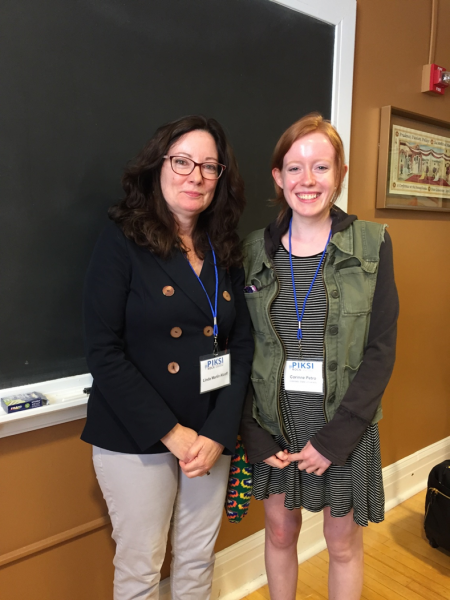
For Corinne Petro, the Philosophy in an Inclusive Key Summer Institute (PIKSI) lived up to its promise of being 10 days she wouldn’t forget.
Petro, a philosophy and ethnic studies student with a concentration in women’s studies, attended the prestigious PIKSI Rock program from June 21 to 30 at Penn State University. PIKSI is a summer program designed to encourage under-represented students to consider future study in the field of philosophy. For Petro, her experience at PIKSI did just that.
“At this point, I am an Ethnic Studies major with a concentration in Women Studies and a minor in Philosophy,” Petro clarified. “After this experience, I am going to do a double major in Philosophy.”
Every year, PIKSI focuses on a central theme that the lectures, seminars, and workshops revolve around. This summer, PIKSI tackled the issue of social justice and proved that philosophy is not confined to academia. Petro worked one-on-one with a graduate assistant, Lacey Davidson, who is doing work on epistemic injustice in her community.
Epistemic injustice is the philosophical idea that women and members of other minority groups can be wronged by a general failure to take their knowledge claims seriously (testimonial injustice) or by the very lack of social resources to fully comprehend their own experiences (hermeneutical injustice). An example of this injustice may be a woman whose credibility and competency is questioned in a professional setting where she is indeed the expert. The injustice is more than a missed opportunity like a well-deserved promotion, but also a disregard for her experience and knowledge. In addition to the professional harm this injustice may cause, it can also result in a deflated self-perception and a lack of confidence.
This study of feminist epistemology and hermeneutical injustice is Petro’s passion and through PIKSI she has been able to refine her ideas on the subject, find resources to strengthen her claims, and speak with someone who is doing the work she wants to do.

“I entered PIKSI with no idea of what to expect. Now, I am leaving with a plan for graduate school, a new group of friends, and a broader range of philosophical interests,” said Petro.
Petro is a first-generation student who entered college knowing nothing about graduate school. PIKSI not only instilled a desire in Petro to pursue a graduate degree, she also walked away with a list of Ph.D. and master’s programs she wants to apply to, information about writing a personal statement and selecting writing samples, and connections with faculty and graduate assistants around the country.
“I am starting to feel prepared for my future, and excited about a future in philosophy,” said Petro.
As part of PIKSI’s goal to inspire under-represented students to pursue philosophy, all transportation and lodging is provided and all accepted students receive a stipend, making PIKSI accessible to all interested undergraduate students regardless of their socioeconomic backgrounds. For more information about the institute, reach out to women’s studies professor and PIKSI alumna Dr. Cori Wong.